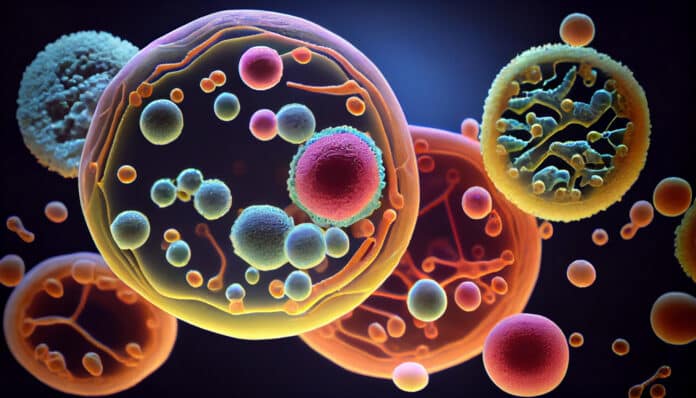Since the beginning of the COVID-19 pandemic, scientists are trying every possible way to determine why this virus creates such negative long-term effects.
Now, a multi-institutional group of researchers led by a group at Children’s Hospital of Philadelphia (CHOP) and the COVID-19 International Research Team (COV-IRT) has discovered that the virus can negatively affect the genes of the mitochondria, the cell’s energy producers, resulting in dysfunction in organs other than the lungs.
Their study offers new approaches for treating COVID-19.
Prior studies have shown that SARS-CoV-2 proteins can bind to mitochondrial proteins in host cells, potentially leading to mitochondrial dysfunction.
Researchers from the Center for Mitochondrial and Epigenomic Medicine (CMEM) at CHOP and its COV-IRT colleagues intended to investigate mitochondrial gene expression to find variations produced by the virus to comprehend how SARS-CoV-2 influences mitochondria. They did this by combining the analysis of nasopharyngeal tissues from affected patients’ autopsies with those of tissues from animal models.
The study’s first author Joseph Guarnieri, Ph.D., a postdoctoral research fellow with the CMEM at CHOP, said, “The tissue samples from human patients allowed us to look at how mitochondrial gene expression was affected at the onset and end of disease progression, while animal models allowed us to fill in the blanks and look at the progression of gene expression differences over time.”
The study discovered that, in postmortem tissue, mitochondrial gene expression had improved in the lungs but remained suppressed in the heart, kidneys, liver, and other organs. Despite the absence of SARS-CoV-2 in the brain, mitochondrial gene expression was inhibited in the cerebellum when investigating animal models and tracking the time when the viral load peaked in the lungs. Additional animal models demonstrated that lung mitochondrial activity was regaining throughout the mid-phase of SARS-CoV-2 infection.
Together, these findings show that host cells initially react to infection in a way that affects the lungs. Still, over time, mitochondrial function in the lungs is recovered while hindered in other organs, including the heart.
Co-senior author Douglas C. Wallace, Ph.D., director of the CMEM at CHOP, said, “This study provides us with strong evidence that we need to stop looking at COVID-19 as strictly an upper respiratory disease and start viewing it as a systemic disorder that impacts multiple organs.”
“The continued dysfunction we observed in organs other than the lungs suggests that mitochondrial dysfunction could be causing long-term damage to the internal organs of these patients.”
MicroRNA 2392 (miR-2392), shown to regulate mitochondrial function in the human tissue samples used in this study, was discovered by the research team as a potential therapeutic target. Future studies using this data will examine how systemic immune and inflammatory responses may be to blame for more severe disease in some patients.
Co-senior author Afshin Beheshti, Ph.D., a biostatistician and a visiting researcher at The Broad Institute, said, “This microRNA was upregulated in the blood of patients infected by SARS-CoV-2, which is not something we normally would expect to see. Neutralizing this microRNA might impede the replication of the virus, providing an additional therapeutic option for patients at risk for more serious complications related to the disease.”
According to Wallace, the demonstration that SARS-CoV-2 markedly affects mitochondrial function supports the hypothesis that individual differences in mitochondrial function could be a factor in individual severity of COVID-19.
Journal Reference:
- Guarnieri et al., “Core mitochondrial genes are down-regulated during SARS-CoV-2 infection of rodent and human hosts.” Sci Transl Med. DOI: 10.1126/scitranslmed.abq1533.
